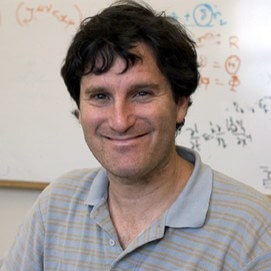News
Contact:
Michael Patrick Rutter
617-496-3185
CAMBRIDGE, Mass. - April 20, 2009 - Frans Spaepen, Interim Dean at the Harvard School of Engineering and Applied Sciences (SEAS) and John C. and Helen F. Franklin Professor of Applied Physics, appointed applied mathematician Michael P. Brenner as the School’s first Associate Dean for Applied Mathematics.
Brenner, Glover Professor of Applied Mathematics and Applied Physics, investigates a wide range of areas across the physical and biological sciences, from understanding the limitations of self assembly to algorithm development for atmospheric chemistry to understanding the aerodynamic mechanism for stall-delay in humpback whales.
He has long served as the Director of Undergraduate Studies for the concentration in Applied Mathematics, as a tutor in Biochemical Sciences, and co-developed Applied Math 50, “Introduction to Applied Mathematics,” with Marie Dahleh, Ph.D., Assistant Dean for Academic Programs at SEAS.
In March, Brenner became the inaugural recipient of the Capers and Marion McDonald Award for Excellence in Mentoring and Advising. The letters of nomination praised his kindness, grace, knowledge and flexibility as an adviser.
In place of a traditional departmental structure and chairs, SEAS is organized, for the purpose of research, teaching, and planning, under broad intellectual areas, each administered by an associate dean.
As Associate Dean for Applied Mathematics, Brenner will help to manage academic and course planning and faculty and staff searches; handle promotion reviews for faculty appointments; represent SEAS to FAS committee on appointments and promotion; and play a prominent role in raising the visibility of the area as an intellectual endeavor.
He will join David Mooney, Associate Dean for Applied Chemical/Biological Sciences and Engineering and Gordon McKay Professor of Bioengineering and Greg Morissett, Associate Dean for Computer Science and Electrical Engineering and Allan B. Cutting Professor of Computer Science.
Cutting-edge science delivered direct to your inbox.
Join the Harvard SEAS mailing list.
